Curated By You: Monica Patel Makes the Zero Waste Workwear Jacket by Birgitta Helmersonn
Tell us a bit about yourself and what you do.
My name is Monica, and I’m 26 and live in London. I am originally from Canada but moved to the UK for grad school and decided to stay as I love the place so much. I work as an architectural assistant and am working towards my final qualifications at the moment so that I can finally be an ‘architect’ after 8 years of studying. I have been sewing for most of my life and over the years it’s become much more than just a hobby to me and I love documenting the process on my Instagram account, @slowrituals.studio.
Why do you sew?
Sewing has always been something that has brought me lots of comfort. Over time, my love for sewing has grown from a curious interest to something that reflects my identity, mood, comfort, and creativity in both the process and the final pieces. I love how specific each sewn item can be, from fit, cut, silhouette, and how each time you sew, you learn something new. More recently, I have been trying to embrace ‘slow sewing’ to really enjoy the making process which really has become a form of self-care for me. I really enjoy big projects with lots of fine details, interesting construction techniques, or elements of hand sewing which force me to slow down and enjoy everything it has to offer.
What do you like to listen to when you’re working (and why)?
I listen to a variety of things while sewing depending on my mood, the type of project or even the weather! I like to listen to podcasts when I am planning on sewing for a long period of time, especially ones with a long story that I can get lost in. I will put on a film if I’m cutting out a project or hand sewing or looking for a more relaxed sewing pace at that time. I love to listen to music when I am trying to energize myself and get in a creative headspace. I listen to all sorts, but my favourites are always Stevie Wonder, Erykah Badu, 2Pac, Kendrick Lamar, Solange, Daniel Cesar, Jill Scott, Anderson.Paak, Frank Ocean, and Aretha Franklin.
As a child, what was your first encounter and memory of beauty?
This is a hard one! I think my first memory of beauty which resonates with me today is the first time I saw my mum’s Indian outfits and textiles laid out on a bed as she was choosing which one to wear for a wedding we were attending. I was very young, but I distinctly remember being fascinated by the colours, textures, and intricate patterns. I remember tracing some of the beadwork with my finger and really being mesmerised by how delicate and elaborate the details were. The beauty and intricacy of these fabrics really shifted what I view as beautiful from a young age, I think.
Where is home and how does it affect what you do?
My idea of home has really changed over the years, but the idea that’s stuck is the feeling of permanence. Now, I feel like home can be anywhere that brings comfort, warmth, and security. As a physical place, home to me means a place where I can be myself and feel at my most vulnerable which I think affects my making practice as it becomes much more personal and comforting. At the moment, my home is in London, UK and definitely, it’s a space where I most feel like myself and it shows in what I make and how I feel. London as a city is full of creativity and beauty and I think that is also affects my mood, home, and daily life.
Name a book that you’ve recently read which inspired you and why?
It’s not my most recent read, but a book that really stands out to me is Interpreter of Maladies by Jhumpa Lahiri. I think the book encompasses so many feelings and emotions of being caught between worlds and the layers of empathy, culture, and beauty of life. I think the book has made me think a lot about how so many of us experience similar sensations or emotions and while the circumstances may be imperfect, there is so much beauty in the day-to-day ordinary life experience. I highly recommend this book especially to any people looking to connect to the wider Indian diaspora experience!
What was the first thing you ever remember making on your own? Tell us about this memory.
I think the first thing I had sewn was an apron for my mum and at the time I remember feeling so proud of the make, in particular the zigzag letter ‘A’ that I tried to stitch in the corner. Last year my mum pulled it out of the drawer, and I was shocked by the state of it (the bias binding in particular…) and that she still wore it. It was my first time using a pattern and I remember feeling like a professional for making something all by myself. I was kind enough to make a new one for her (over 10 years later) and can confidently say it will last much longer than the first!
Who are your muses and inspiration?
A major inspiration for me is the textile work by Anni Albers. I love how she would document ideas and process with small, annotated drawings and it definitely has inspired how I think about making. I am constantly inspired by the sewists I have discovered via Instagram as well as lots of textile makers and fashion curators online. I am especially inspired by people who document process and their ‘everyday’ outfits – it’s so beautiful to see how people live and move in what they choose to wear.
Do you have a community of crafters/ makers around you or do you find you are on your own?
When I was learning to sew many years ago, I didn’t really feel the sense of community around making, probably since most of the people I knew who sewed were much older than I was. When I turned to social media, I was really surprised and inspired by this sewing community that existed online! The community has really influenced how I think about making and is a constant source of inspiration and learning. Recently I have met a few London based sewists in real life and its been incredible to connect in person.
How important is it to make something with your hands?
Making with my hands is incredibly important to me as it feels so cathartic. I am especially interested in slow making as I feel the process is just as rewarding as the final objects we create.
What has been the most rewarding sewing project you’ve completed so far and why?
Hmm this is a tough question as I feel like I learn something from each garment I make, but I think the most rewarding has been my Kantha Jacket. I put in so many hours it really became a labour of love, and the final piece feels like something I will keep for the rest of my life. When I look at the embroidery, it reminds me of all the little happenings that I went through while making the garment – almost making each stitch feels important somehow. It is very rewarding to see the amount of patience, love, and care I was able to put forward to make something that I value so much.
What is more important to you – the process or the final product (ie your garment)?
I think the process will always be more important to me as I think that’s what I find to be the best form of self-care. Funnily, every garment where I have really tried to embrace the process over the outcome has gone on to be one of my more treasured makes.
What does success mean to you?
To me, success means feeling happy with who I am and confident with where I am going. It’s about showing up each day and giving my best as authentically as I can in everything I do.
What have you chosen to make out of FS linen and why?
I have chosen to make the Zero Waste Workwear Jacket by Birgitta Helmersonn in the heavyweight linen Insignia Blue. One of my goals for the year is to work out items that feel ‘seasonless’ so that I can maximise wear but also find a ‘uniform’ that works for me and my daily life. For now, my uniform seems to be some form of outer / structured layer, a soft base, and some form of clean-line trouser. For this make I chose to focus on the outer layer and make a workwear style over-shirt/ jacket that could easily be layered or worn on its own depending on the weather and my mood. I feel like this make fits seamlessly into my wardrobe and I’m really excited to style it all year long.
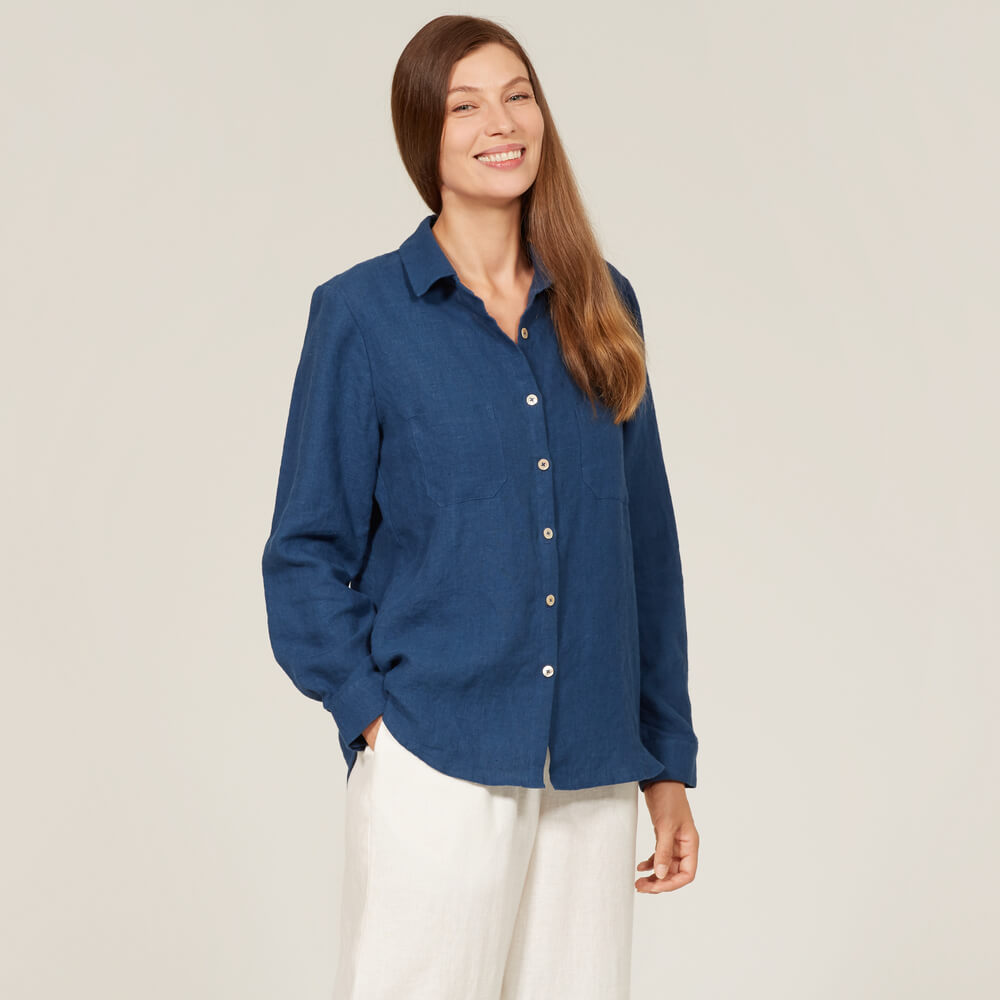

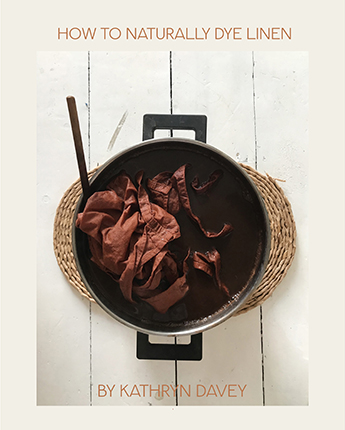
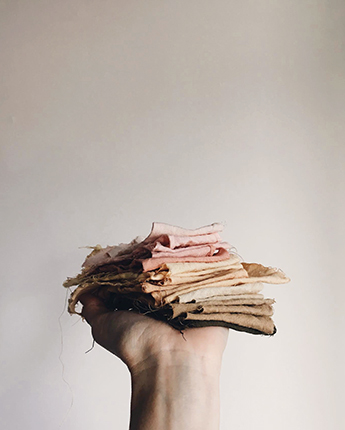

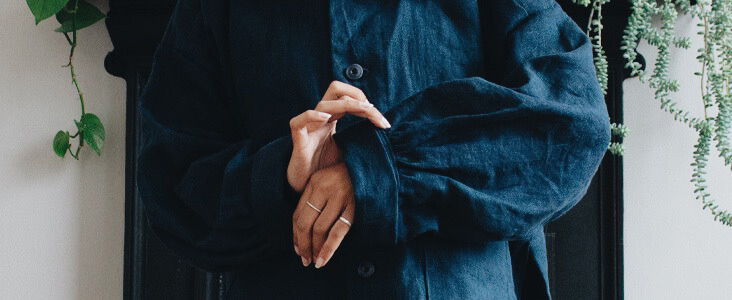
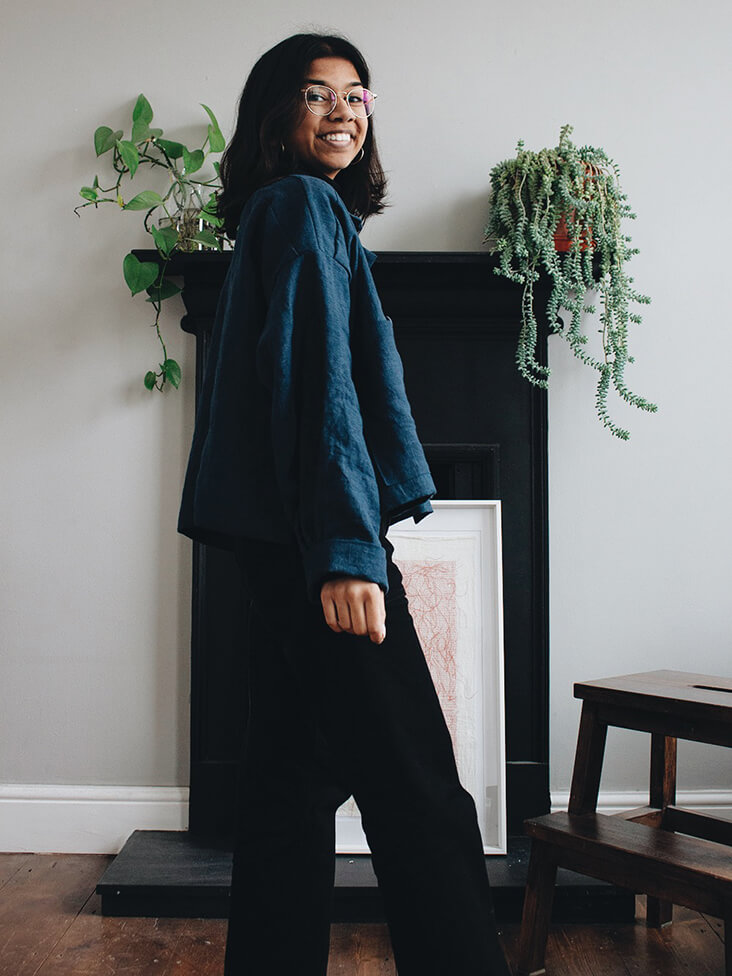
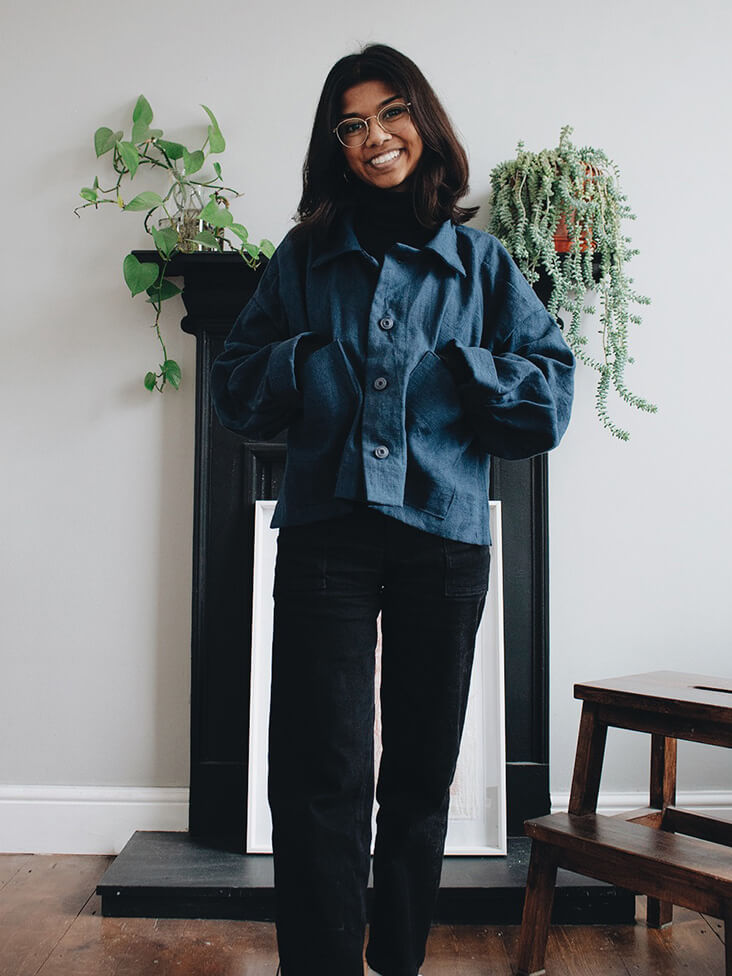
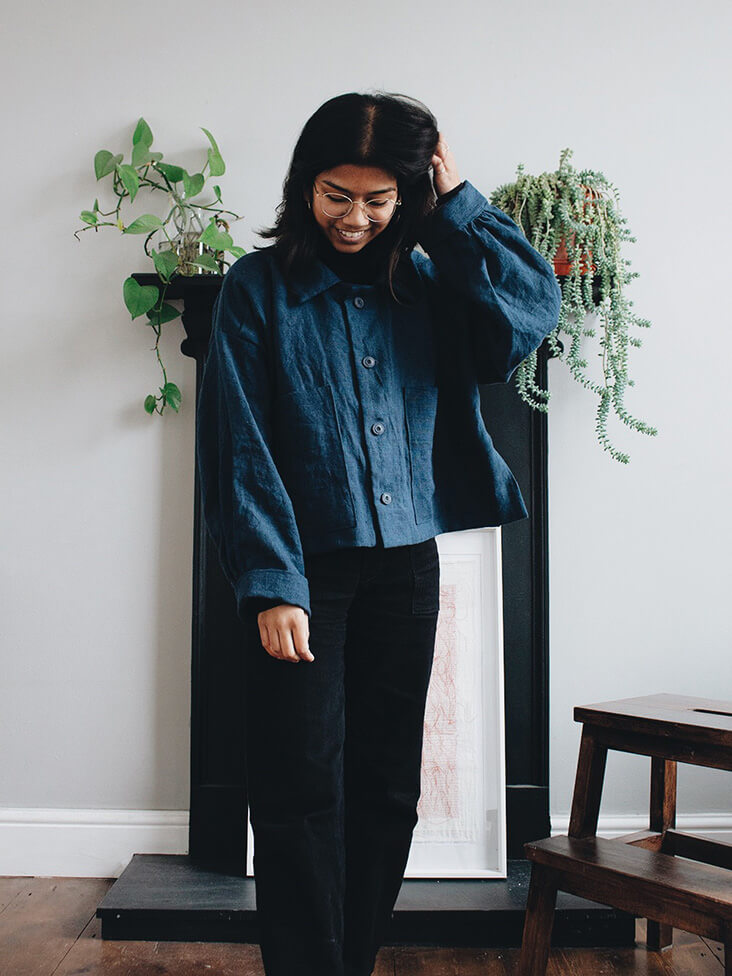
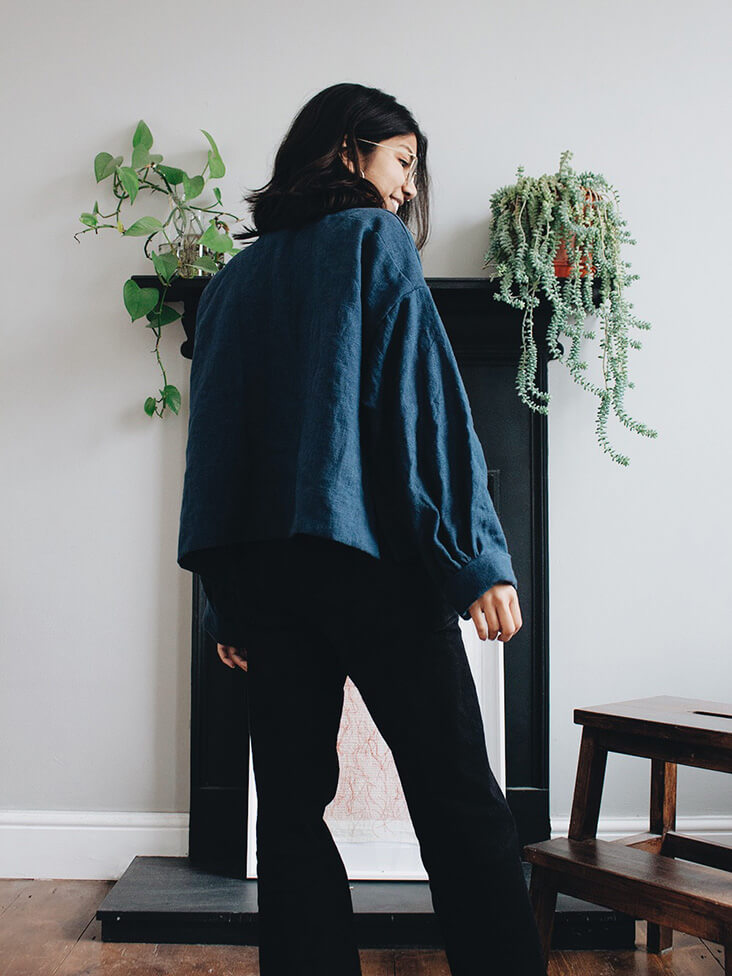
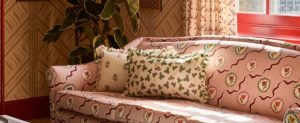

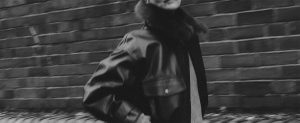
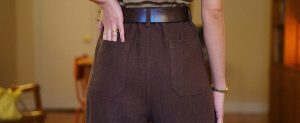


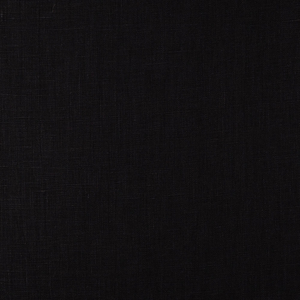
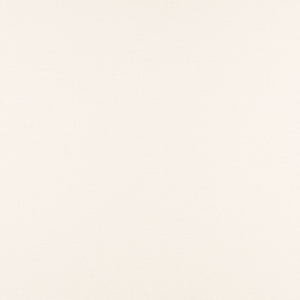
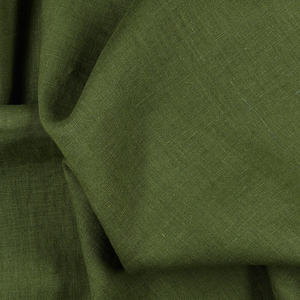
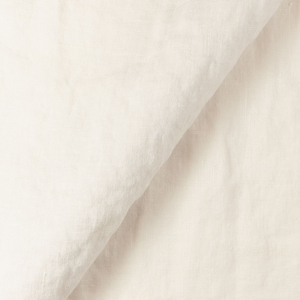
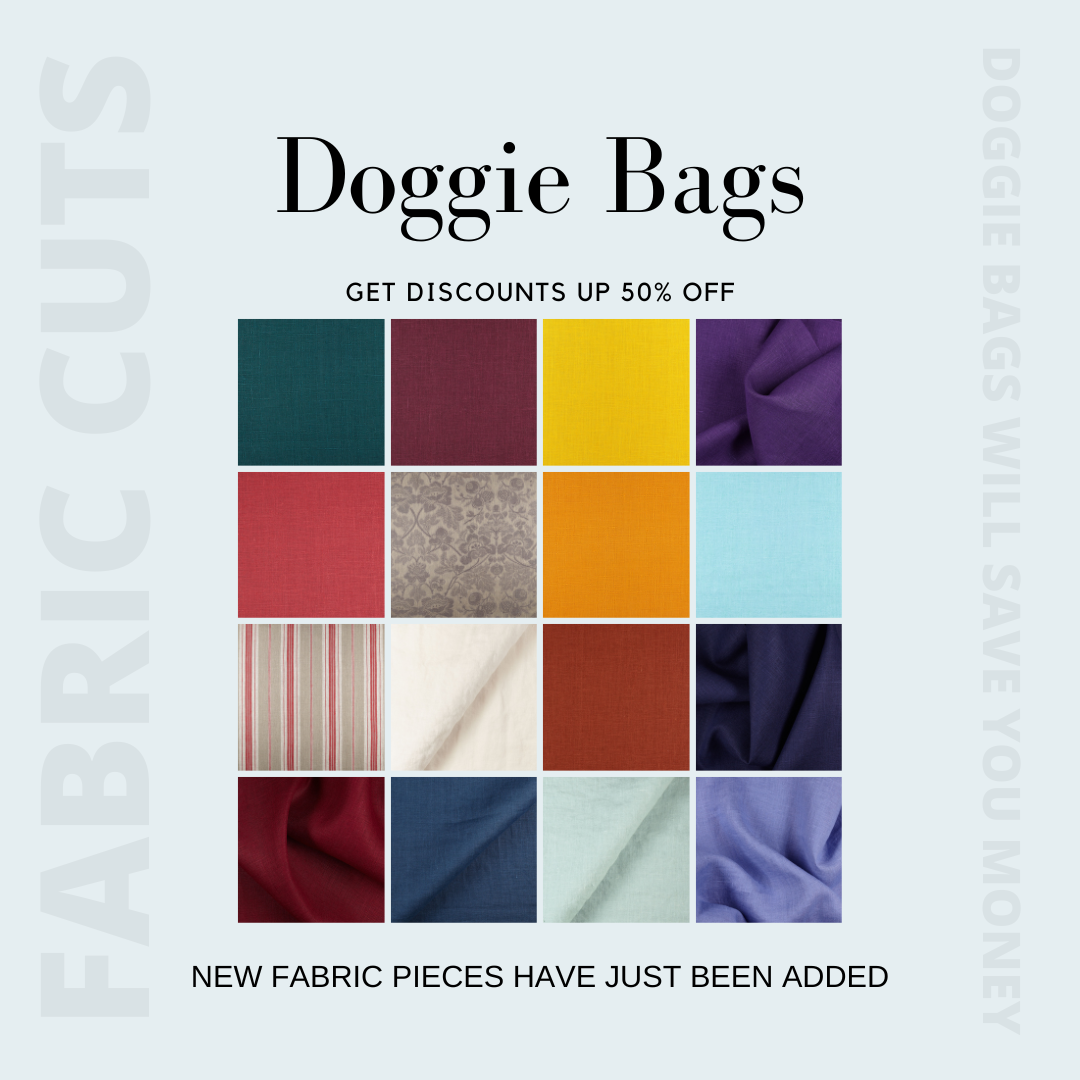
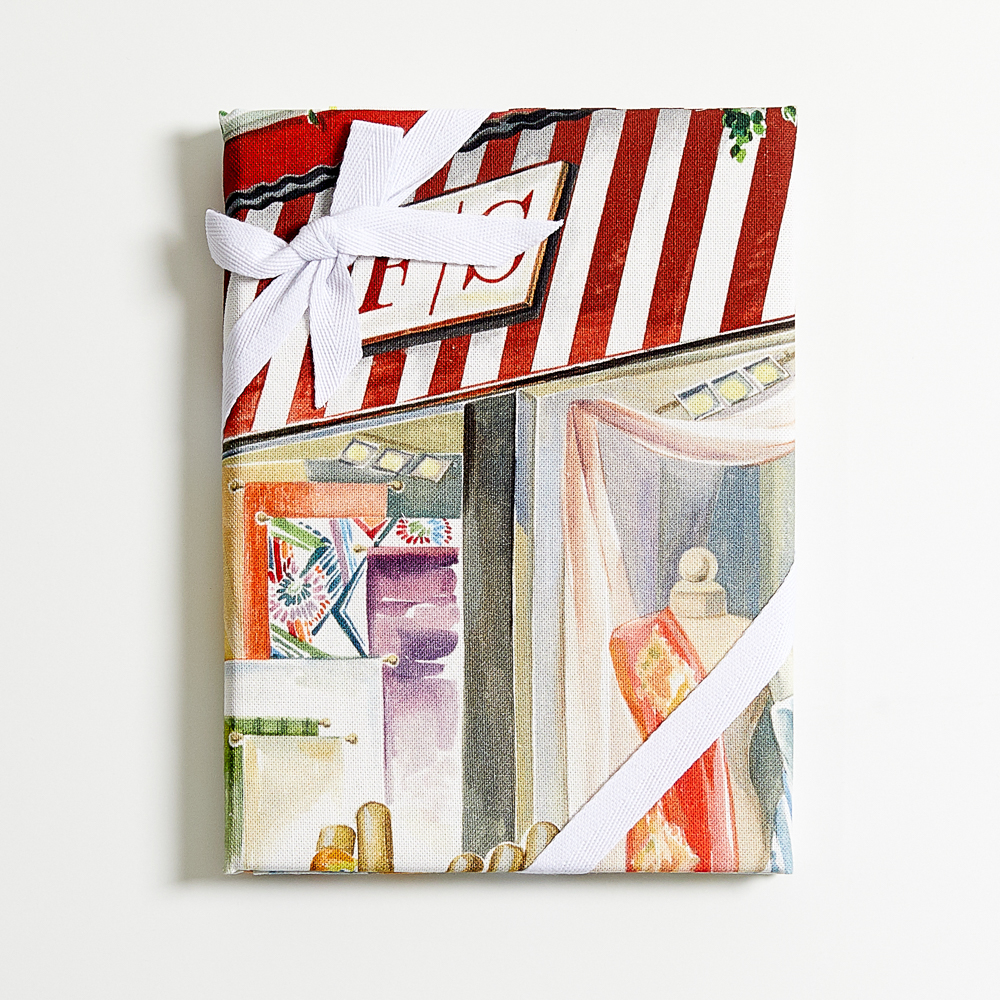
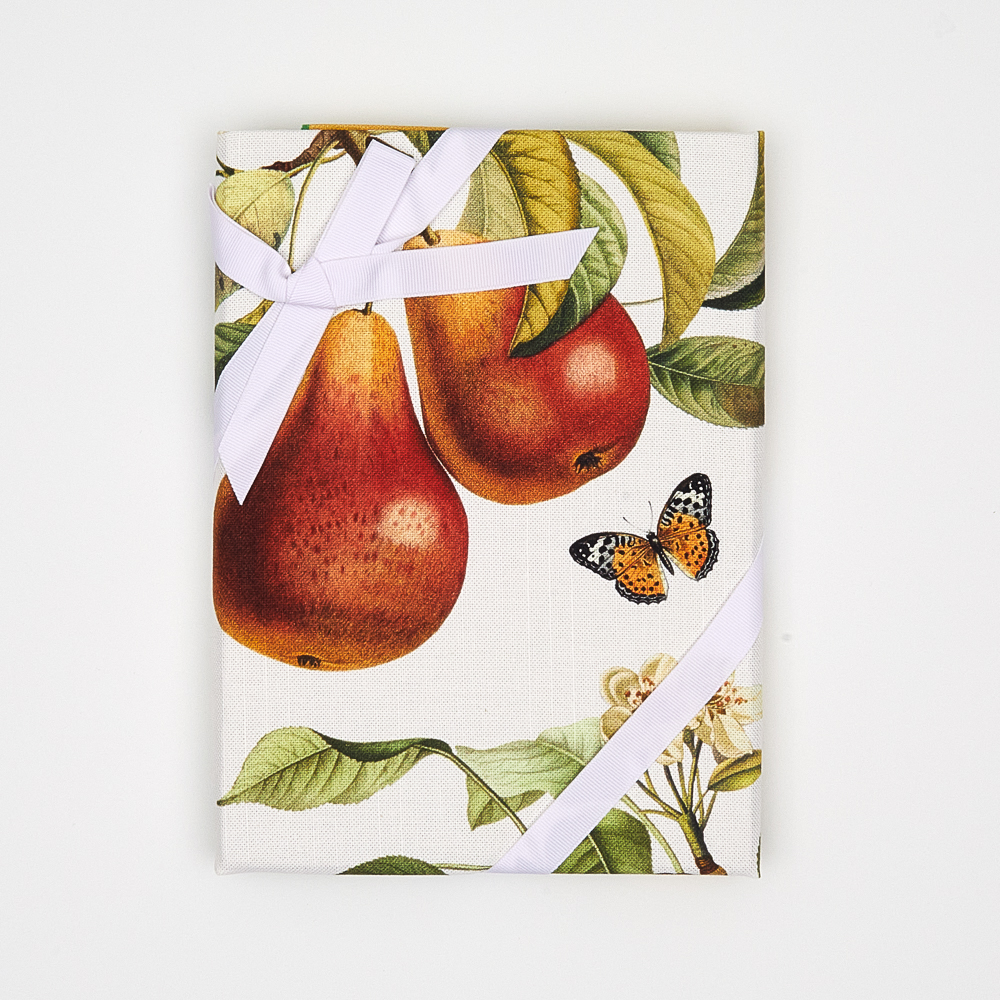




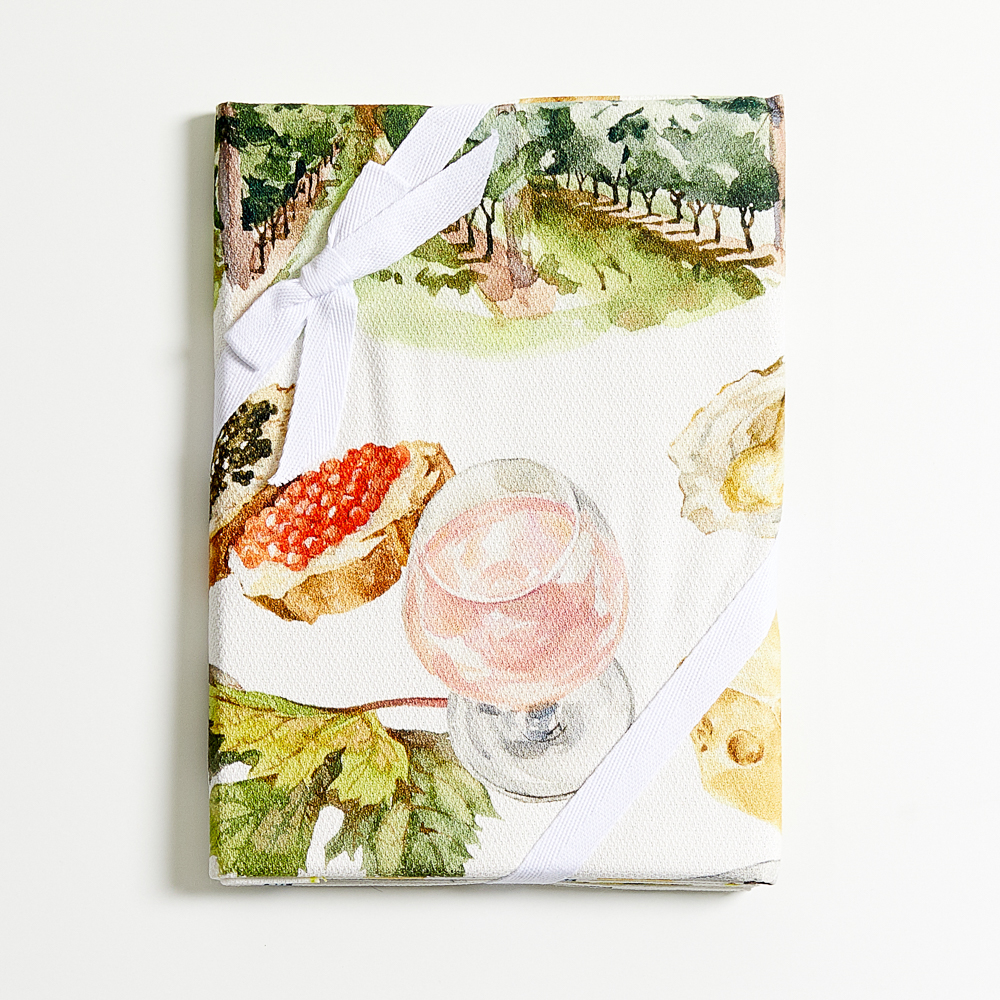

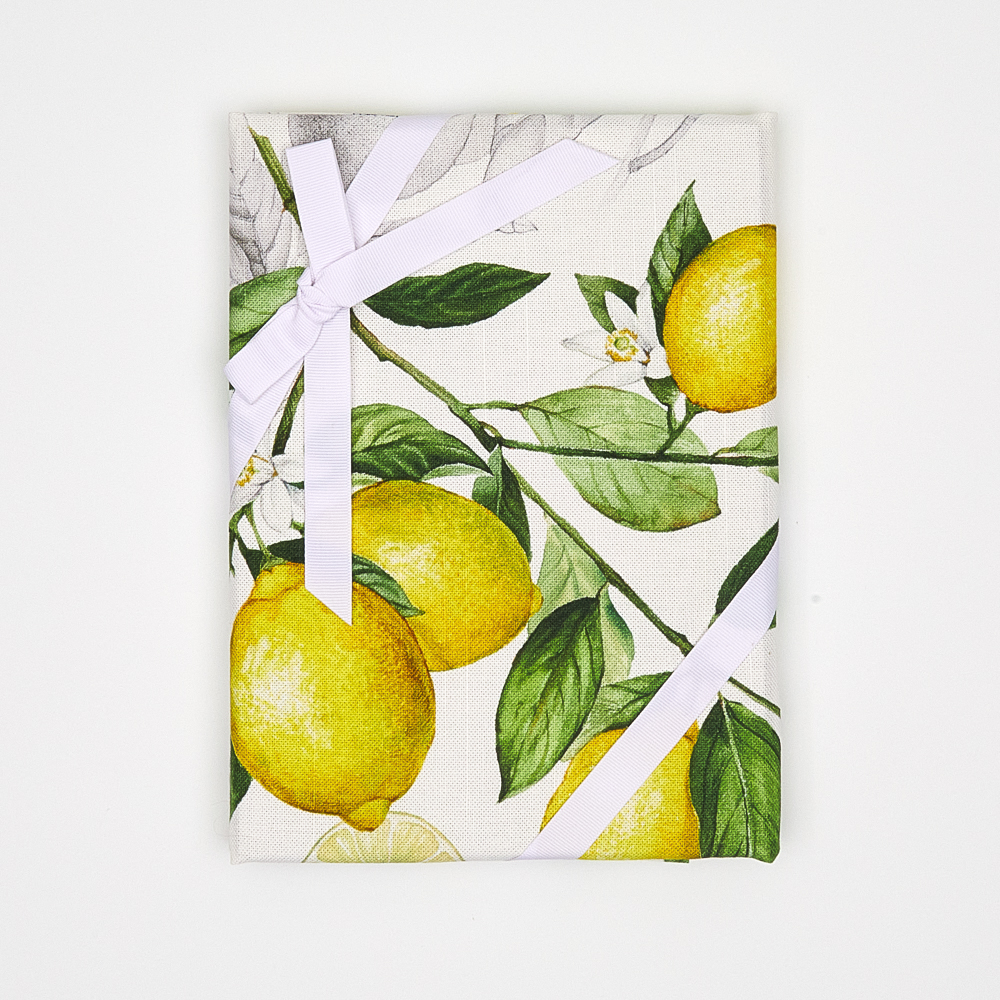
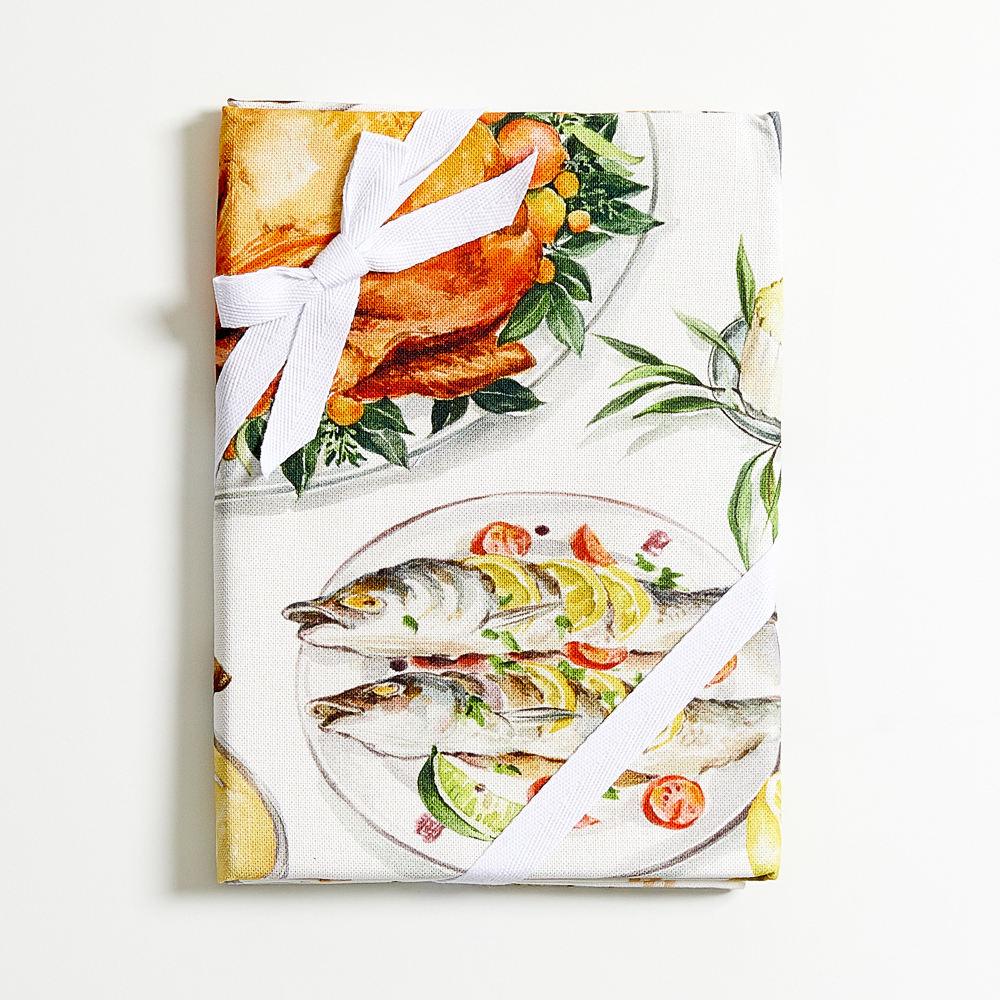

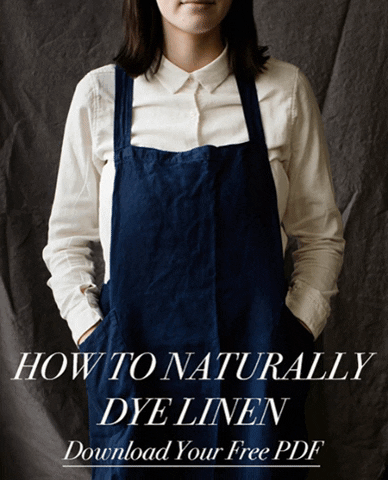
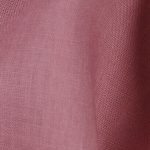
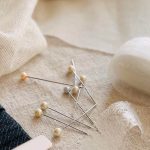
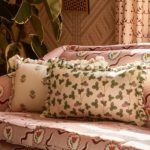
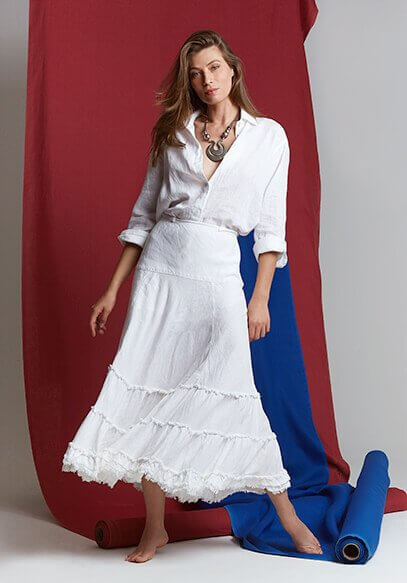
2 Comments
Laura Andrews
I love the jacket! Is it single layer, or lined? I’d be interested to see the inside.
Marilee Henneberger
I note that Monica chose to use a Zero Waste pattern by Birgitta Helmersonn for her jacket. I wish she’d written a bit about her experience sewing with it. I am keenly interested in reducing fabric waste and have been exploring the few patterns available. Birgitta Helmersonn has several patterns [if thats the right word for cutting layouts] that seem perfect for linen. Some of the early ZW designers went a bit extreme with cutting edge styles that didn’t have broad appeal, but styles like this workwear jacket are not only practical but attractive and very wearable.